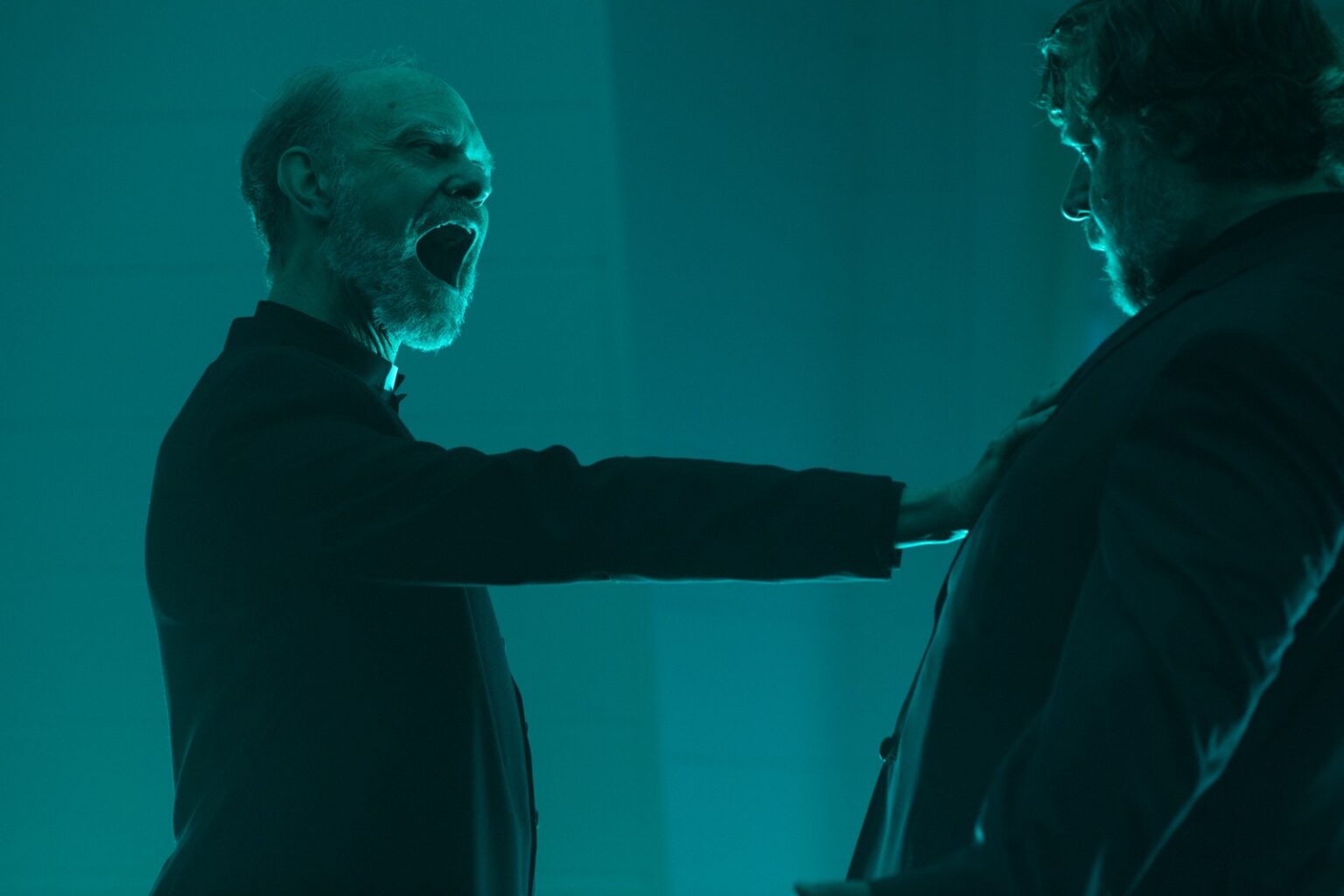Interview by Paul Salfen
Synopsis
Shot as a movie within a movie, The Exorcism stars Academy Award-winner Russell Crowe as Anthony Miller, a troubled actor who is trying to resuscitate his career when he lands the lead role of a priest in a supernatural horror film about an exorcism. As unsettling events unfold, his “lucky break” takes a dark turn. The director (Adam Goldberg), aiming for authenticity, subjects the struggling actor to humiliating treatment, forcing him to confront past traumas and accelerating his decline. Witnessing his suffering, Anthony’s estranged daughter (Ryan Simpkins) turns to the film’s priest advisor (David Hyde Pierce) for help. Has the pressure of making the film sent Anthony back to his old addictions, or has it opened a portal to something more sinister?
FILMMAKERS’ STATEMENT M.A. Fortin (Writer) & Joshua John Miller (Writer-Director) The origins of this movie stem from Josh’s childhood spent watching his father, Jason Miller, playing the doomed Father Karras flinging himself out a window at the climax of The Exorcist. If that wasn’t haunting enough on its own, Jason never shied away from telling Josh stories of just how “cursed” the movie was: the mysterious fires that plagued the production, the strange deaths, the lifelong injuries— the list went on and on. In one of many “making-of” specials, Josh’s father recounted a priest stopping him on the street out of nowhere to assert that “when we dare to unmask the devil, the devil retaliates.” Jason wasn’t even shooting that day, and wasn’t a recognizable figure yet, either. The moment haunted him, and the lore of any “cursed film” has captivated us both ever since.
When we first wrote this movie in 2019, there wasn’t much that didn’t feel cursed anymore. A particular strain of nastiness had been unleashed into daily life, seemingly granting permission to many people (public and private, sometimes in our own families) to be their worst selves. The changes we saw in some individuals were so extreme that we joked they seemed, well, possessed. Rage was contagious, and none of us were immune.
As a queer couple, watching certain segments of the Christian faith go after LGBT folks and women was especially disturbing to us, if unsurprising. While we acknowledge the church is a source of great joy and comfort to many, it’s also proven itself to be a blunt instrument of abuse and shame just as often— kind of like Hollywood. When we first started writing this movie, there was a lot of terrible behavior being unearthed in both institutions— wounded people inflicting wounds on those around them. Out of this “meta” stew, The Exorcism was born.
With The Exorcism, we wanted to update the possession movie formula (“Heroic man rescues woman from forces she’s too weak and simple to battle herself!”) for a world where no one group owns goodness and decency over another. We were gifted with an extraordinary cast and creative team to tell a story about how we’re all vulnerable to darkness, to perpetuating it, if we fail to face our demons. The devil may retaliate, but what other choice do we have?

